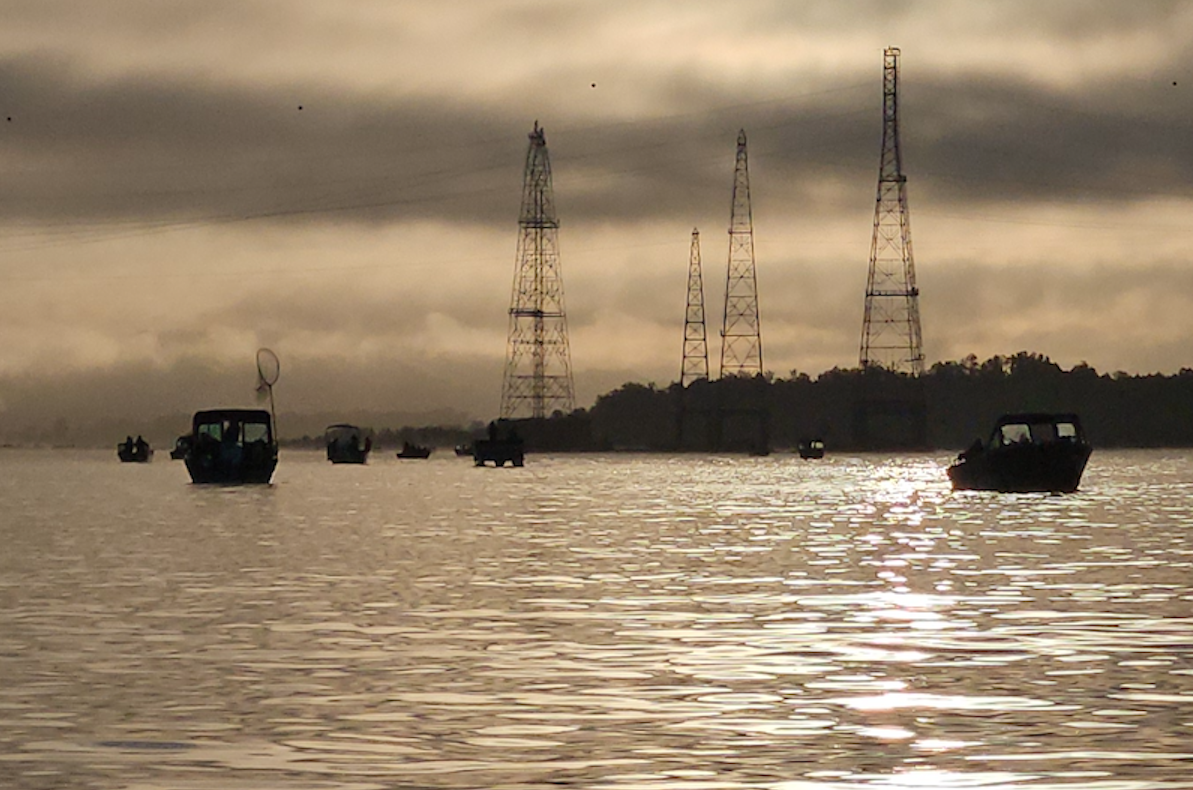
Columbia Endorsement Bill Passes Out Of Washington House
A bill that would require Washington salmon and steelhead anglers to once again buy an endorsement to fish the Columbia River and its tributaries passed out of the state House of Representatives today on a 53-44 vote.

HB 2003, which resurrects a fee in effect from 2010 to 2019, now goes to the Senate and is one of two fishing-license-related bills active in the state legislature.
The other is SB 5583, which would increase hunting and angling fees for most sportsmen by 38 percent as well as authorize the Fish and Wildlife Commission in odd years to tack on a surcharge to fund increased operating costs passed on by lawmakers, compensation or central services. It was narrowly approved in the upper chamber on a 25-24 vote.
The $19.3 million in revenues that that bill would raise every two years would merely replace a like amount of General Fund dollars lawmakers are looking to pull out of WDFW’s budget. It’s the same deal with the endorsement. The revenue assumptions are baked into two-year budget proposals.
WDFW did not request either bill. Both were opposed by all Republican lawmakers, and they both also saw some Democratic legislators vote nay as well.
However, Representative Kristine Reeves (D-Federal Way) was not one of those crossover votes on HB 2003 today.
“Mr. Speaker, you may be aware that we already do an endorsement on fishing in the Puget Sound [for Dungeness crab]. Where we don’t do an endorsement right now is on this type of fishing in the Columbia River,” said Reeves. “I want to make sure that folks who are benefiting from the natural resources of this great state, particularly as we are doing the hard work of recovering our salmon and steelhead populations, are paying their fair share for the privilege of being able to access these natural resources, Mr. Speaker, and so I’m asking you to vote yes for this very thoughtful and pragmatic approach.”
According to a nonpartisan bill summary, revenue from the bill could only be used for selective fisheries on the system, including monitoring, data collection, enforcement and other such facets. A fiscal note estimates it would raise $676,000 towards that in 2026, when it would go into effect, $1.3 million its first full year, and then $2.7 million every two years afterwards.
Republicans weren’t, er, biting.
“Salmon fishing is one of the essential joys of living here. It’s a cultural thing, and I’m not exaggerating when I say that. We shouldn’t be making a separate tax structure on top of such an essential and defining activity in where we live. This is the wrong way to go about fixing legitimate issues in our management of wildlife and in fisheries,” decried Representative Jim Walsh (R-Aberdeen).
He also called for managing pinnipeds at the mouth of the Columbia, which he blamed for low runs.
A House bill that would have requested Congress and the Trump Administration tweak the Marine Mammal Protection Act to give the state more management latitude with sea lions and seals received a lot of support in committee but didn’t go anywhere afterwards.
Representative Kevin Waters (R-Stevenson), a local angler, said he was initially excited about the Columbia endorsement bill, but is disappointed it wouldn’t provide funding for things like dredging the mouth of the Wind River just east of his hometown and which will get busier and busier in the days and weeks ahead.
“This bill could be that that helps these folks, like my county, like Klickitat County, actually have resources to invite more to fish. But for right now, I’m respectfully asking for a no because I don’t see where this money goes other than to a slush fund, and we don’t need that,” Waters said.
A WDFW webpage on the old endorsement, which came out of 2009’s budget shock to offset some $30 million in agency General Fund losses at the time, states, “These funds were used to maintain and improve recreational salmon and steelhead selective fisheries in the Columbia River and its tributaries. Specifically, the funds supported fishery management activities, including scientific monitoring and evaluation, data collection, permitting, reporting, and enforcement. Without the revenue from this endorsement and the guidance of the Columbia River Salmon and Steelhead Recreational Angler Board, many popular fisheries may be limited.”
Reading from the legislative staff bill report, Representative Ed Orcutt (R-Kalama), said, “But wait a minute, isn’t that what the DFW is already supposed to be doing? Why a new tax or reinstating a previous tax to do what DFW is supposed to be doing all along?”
He also offered an amendment that would have resurrected that anglers board, comprised of six to 10 members from up and down the big river, to make recommendations on how endorsement fees are spent.
“If they’re going to pay more than people in other parts of the state, it seems to me like they should have a little more say in what’s happening with the dollars they’re spending,” Orcutt argued.
But his amendment failed to get enough support.
The bill leaves expenditures up to WDFW’s director (or designee), someone who may not get a Christmas card this year from Orcutt for entirely different reasons.
After further calls by Republicans to vote no, a roll call was held and the bill was passed even with six Democrats voting against it.

While HB 2003 must still must be approved by the Senate and then be signed into law by Governor Bob Ferguson before the endorsement officially returns, as proposed, with dealer fees, it would cost $8.75 for adults and $7.10 for youths and seniors out the door, and it would go into effect January 1, 2026.
Anglers fishing on the Columbia everywhere from the Rocky Point-Tongue Point line just upstream of the Astoria-Megler Bridge to Chief Joseph Dam, as well as its tributaries, for Chinook, coho, sockeye and winter- and summer-run steelhead would need to purchase it.
